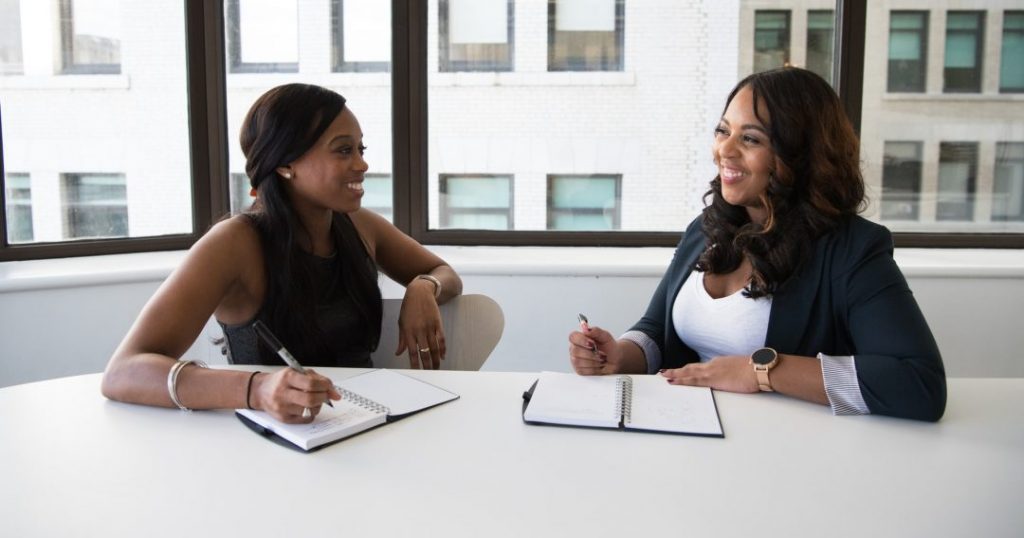In previous articles about job interviews, we focused on the candidate and on questions. But of course, there is another party at the table: the company. In this article, we will try to give you some insight so that you never miss out on your ideal candidate.
It should not come as a surprise that many of these tips mirror the ones for candidates: after all, as much as candidates want to show the best version of themselves, you want to show the best side of your company. Still, many companies fail to do so. What can be done to show off your best side?

Before the job interview
Personalization
Before you even get to an interview, you need to attract candidates, usually with a job advertisement. As with many things, a personalized version fares best. In this case, personalized does mean that it already should show what the job entails. If you are looking for a developer, you could use some code in the job post. Make it stand out! Try to stay away from too much jargon and from too much content in itself as well. Here you can find some tips for putting the right job advertisement online.
Now that part is done, it is time to prepare for the interview itself. Schedule a date and make sure to avoid cancellation – or at least, if a change of appointment needs to be made, let the applicant know in advance. It is just common decency and will spare the company from negative feelings on the other side. If this does not happen, the chances of this person still wanting to work with you decrease drastically and you might lose out on talent.
Prepare yourself
Be prepared for the interview. You expect the candidate to be, so why would you not be? Another important thing for a company is sending the right person to the interview. The interviewer(s) should know the specifics of the role you are hiring for, so as not to fall short on what is expected of the candidate.
When the day of the interview arrives, interviewer(s) should follow the company dress code. They are the representative(s) of the company, and while the candidate will be selling themselves, the interviewer(s) should sell the company to the interviewee too. Again, if there is any change of timing, notify the candidate in advance. Even if things are running a bit late, make sure that someone takes care of your candidate: offer them a drink and show them the bathroom (or even the office space, if you have to walk through it anyway). These are all things that can make the whole experience more pleasant for everyone involved.

During the interview
First impressions
First impressions are important, but they should not be the decisive factor in the evaluation process. We advise that you take a few measures to help you make a more objective review. To evaluate a candidate better, it might be useful to record the entire interview and listen to it later. Do not forget to ask for the candidate’s consent, since this could be considered a breach of privacy. Another thing to do is challenge your first impression throughout the whole interview: if the impression is good, try to find reasons not to hire the candidate nonetheless; likewise, if the impression is bad, try to find reasons to hire the candidate despite that.Some ways to combat first impression bias can be found here.
Listen to the candidate
Furthermore, it is logical that during the interview, the candidate should be heard and everything that they say should be valued, and you should be open to questions from them. It is probably best if the interview drifts away from a classical question-and-answer interview session into a conversation. In doing so, the candidate’s stress level might lower, and this should improve the quality of the entire conversation, giving you a better image of the applicant overall. Don’t fall into the trap of talking too much yourself – while this seems obvious, many hiring managers cannot resist it, and ultimately it will give you less material to work with while evaluating the candidate.

After the job interview
Personalization again
When the interview is done, stay polite and lead the candidate to the door and say goodbye. Courtesy does not end when the candidate walks out the door: get back to them as soon as possible and if you feel like you need more time to give a definitive answer, at least inform the applicant about the delay. Whether the answer is positive or negative, try to give personalized feedback. No, this does not mean that you need to give clear reasons for rejections (this might even be legally forbidden or is like walking on a tightrope anyway), but a little personal feedback and encouragement for the future gives a better image.
Onboarding
The story does not end here for a successful candidate. When all the administration is in order, it is time for your new employee’s onboarding process. This is easily the most important period: precise numbers may differ from source to source, but it is clear that many employees leave their new job within the first six months. If you don’t take care of your new hire, you should not be surprised if their time at your company isn’t be long either.
One of the main reasons that is given for this is that the job is not what was projected during the job interview. This is something that you should avoid; do not make false statements about the position in the job advertisement and, subsequently, do not project the incorrect image of the job in the interview. More specifically when it comes to the onboarding process, it is regarded as important to provide a sufficient amount of training, and another component that is rated highly is the personal connection with other team members. This is a difficult thing to achieve in normal times, but even more difficult in times of COVID-19 and the aftermath, so be very aware of this.
So, to recap:
- Personalization goes a long way
- Let the interview be done by the right people
- Hospitality is key
- Don’t leave candidates in the dark for too long
- Make sure you have your onboarding process in order




